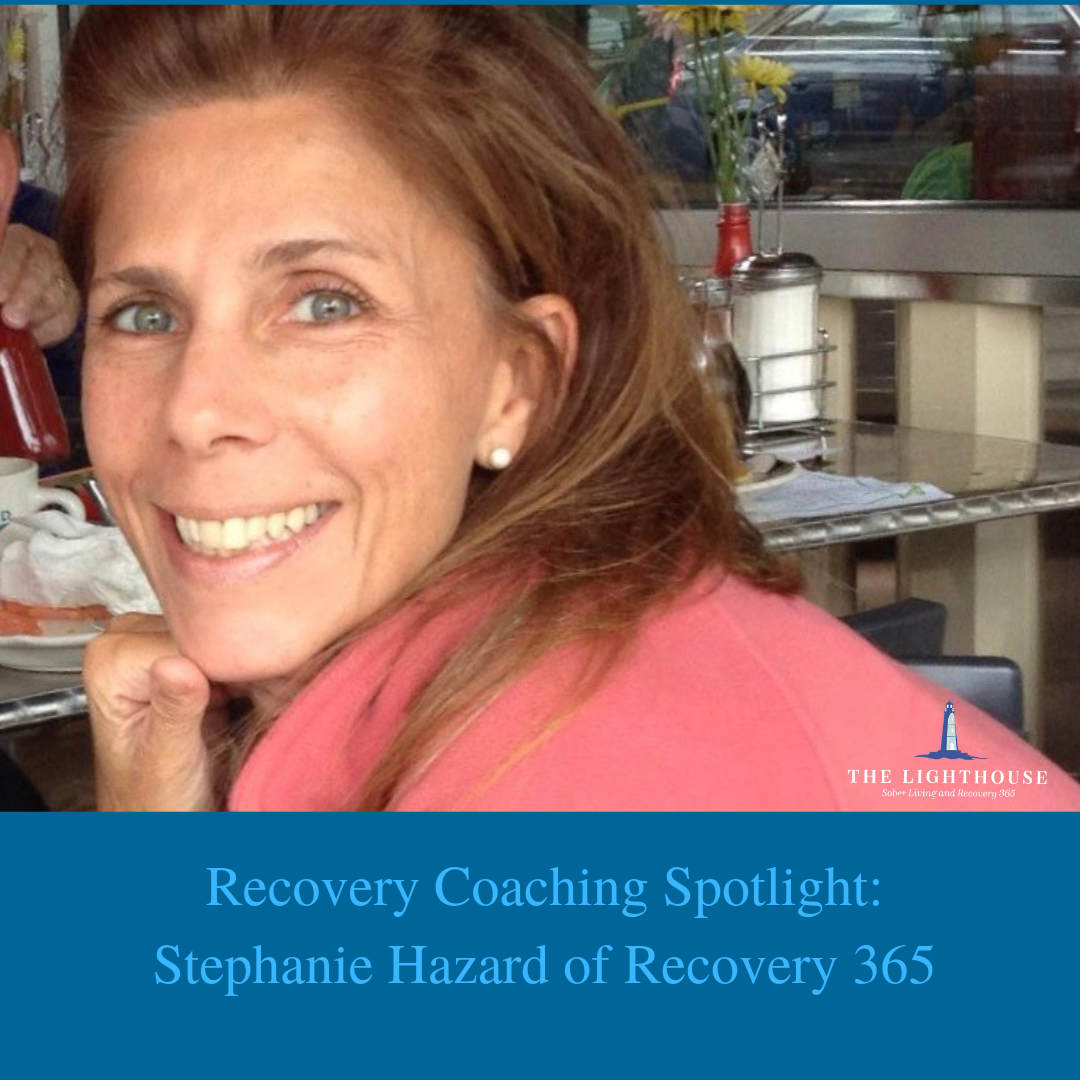Recovery Coaching Spotlight: Stephanie Hazard Of Recovery 365 on Coaching Women in Early Recovery
Recently, I had a chance to chat with Stephanie Hazard of The Lighthouse Recovery 365 Team. During our conversation, I was able to learn more about Stephanie’s approach to helping women overcome barriers blocking their recovery. She helps women identify painful feelings and experiences by sharing their past traumatic events to offer strength and hope, so women in early recovery can feel encouraged and achieve happiness.
Stephanie, how did you decide to become a recovery coach?
“The quick answer is Trey Laird planted the seed. He saw something in me and said,
‘You would make a great coach,’ and I felt inspired – I was immediately sober coach curious.”
Can you expand on this some more?
“I knew Trey Laird in passing and enjoyed listening to his message of recovery. I was curious to learn more about Trey and The Lighthouse Sober Living Recovery 365 program, so I phoned him to set up a meeting.
During our meeting, I approached the topic of women in recovery and what plans The Lighthouse currently had for helping women in early recovery.
Trey replied his team was discussing the future possibility of opening a women’s sober living home. He then told me the Lighthouse Recovery 365 coaching program was expanding to offer recovery coaching to women in the tri-state area.
Trey then said to me, ‘Steph, I think you would make a fabulous coach.’
My reply was, “What are you even talking about?”
He explained what a certified professional recovery professional is and the role coaching plays in assisting others embarking upon recovery and the accessibility of training through CCAR ( Connecticut Community for Addiction Recovery)
He piqued my interest, and the voice in my head said, ‘Okay, Game on.’ I decided to learn all I could think about recovery coaching.
After our talk, I went to several events in Fairfield County explaining why and how recovery coaching works.
I’m not one to sit on my laurels. I decided recovery coaching was for me, scheduled my training, and completed my certification process quickly.
After I was certified, I started working with Recovery 365. I spoke with Brian Nash, the Executive Director, and explained how I felt about working exclusively with women. I told him I wanted to be the brand ambassador for Recovery 365 to women. Brian thought that was awesome. My path was set.
I got sober as a single mother. I understand the barriers to treatment. Believe it or not, women face many more obstacles to self-care, especially in regards to recovery. They still tend to be the last one on the totem pole when it comes to who they need to take care of. I am passionate about helping women overcome the obstacles they face when wanting to get sober.
God Bless Trey Laird, Carol Cruz, Andy Hersam, and Peter Clarke at Silver Hill for leading and guiding me down this fulfilling path.”
How would you define recovery coaching?
“I’m a river guide — a brand ambassador for recovery.
Let me expand on this thought by highlighting the process I employ when meeting with a client for the first time.
I use the tools for active listening and motivational interviewing I learned during training. I give my client my full attention and absorb what she has to say. Active listening helps me to know where she is in recovery. Once I understand where she is at, I can draw upon my own experiences to further relate to the story she is telling me.
At this moment, I become her river guide. If a client can identify with my experiences, I use them to illustrate to her that we do heal, and recovery is possible. My experience in recovery provides strength and hope. I work with women to make better decisions, feel their feelings, and set goals for fulfillment in recovery.
I consider alcohol and drugs, eating disorders, and other harmful behaviors as self-destructive coping mechanisms. Typically the shame and guilt an individual feels are perpetuated. My job and joy are explaining to clients how recovery coaching will help them to develop coping skills vs. mechanisms.
Coping skills enable her to heal the wounds from her past slowly. Coping skills are life-enhancing. Skills are solution-based and include connection – connection to self and connection with others. Specific coping skills include peer support, meetings, journaling, and setting goals.
When I share my past trauma, I believe it shines a light on shame. My sharing helps other women to realize it is okay to feel, experience, and discuss their pain, so they, too, can break through and begin healing.
Substance use muffles and masks the pain. Not only does it not work, but it creates a secondary problem, which is an addiction. When we start to unpack the trauma, we begin to peel away the layers of pain. When we lean into the pain, we activate the healing. I consider part of my role as a recovery coach to be a midwife for feelings.
I am not a therapist, however, and so my role and goal are to help my client begin to connect with what sometimes needs to be explored more in-depth in therapy.
What does recovery look like for you?
Recovery is a process. Recovery is a change agent. Recovery takes the pain and converts it into a gift.
It doesn’t just snap into place. I can’t tell you my life is all rainbows and joy after 20 years of sobriety. However, I am a better version of myself as a result of my recovery from substance use disorder. I have a better relationship with myself, friends and family, and society at large. Alcoholism is the only disease I know of where the remedy allows you to become a better person. I’m no longer running around putting out fires, starting fires, or worrying about whether my actions and choices are hurting other people. I live in gratitude.
Life doesn’t change. What has changed is how I choose to act and respond to individual problems. I am poised to tackle issues and live in the solution. When I lean into my pain, I activate the healing. In the past, I could talk about feelings from sun-up to sun-down, but feeling my feelings was a different kettle of fish.
Sitting in meetings and listening to others share helped me to slowly uncover the multiple layers of pain I had hidden deep inside of me. Shared experiences and connecting with other people helped me feel and heal one layer at a time.
This is what makes recovery coaching so valuable. Many newcomers don’t understand the power of connecting with a support group. As a recovery coach, I encourage my ‘coachee’ to do whatever she needs in her recovery daily. I provide my clients with a holistic view of her recovery environment.
How do you advocate for your clients?
I am a member of my client’s’ team, along with the Recovery 365 coaching team. I work with my client’s team, which may include a psychologist, trauma therapist, or sponsor.
Recovery 365 collectively works towards helping each coaching client succeed in completing their goal of long-term recovery. The Recovery 365 team is supportive of each other. We support one another to become better coaches, people, and advocates for improvement.
How does your experience empower other women to start a process of healing?
Most women are the last ones to seek help in a family. They work to ensure other family members get needed coaching such as the lacrosse coach, soccer coach, dance coach, executive-business coach, personal trainer. By the time the woman of the household realizes she needs help, she feels boxed-in, without a way out.
Unfortunately, it typically takes an acute experience, which causes a woman to reach out and ask for help. Without this critical experience, a woman will stay home, isolated, and try to navigate her feelings, substance use, anxiety, and fear on her own.
I hope that my being open and vocal about my experiences encourages other women to find the strength to reach out and ask for help. For me, it’s all about expressing the benefits of recovery as often as I can. I’m passionate about breaking down the barriers most women face in regards to finding a path into healing.
At the Lighthouse Recovery 365, we have a team of passionate women recovery coaches who can help you find your path in recovery. If you or a loved one would like to speak with one of our recovery coaches, call Call Trey Laird 203-400-8065



